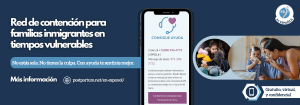Angela Sue’s Story
At PSI, we understand that storytelling has the power to save lives, and we are honored to provide a space for survivors to share their stories. This article is part of a subsection of the PSI blog dedicated to survivor stories. Please note that this story has not been edited, and caution is advised as distressing themes related to perinatal mental health may be present. If there are specific trigger warnings for an article, they will be listed below. Links to resources can be found at the bottom of this page.
Trigger warning: abusive childhood
I never expected to be diagnosed with postpartum depression.
I remember my initial joy at my surprise pregnancy diagnosis, one week after a negative result. I thought that my community, stable career, and marriage would protect me from any mood disorder. I was wrong. As my pregnancy progressed, fear and doubt started to consume me. I was haunted by memories of my abusive childhood and worried about keeping my future child safe. I thought about how to keep my baby safe from the pain I experienced. I did as much as I could to prepare and perhaps overcompensate for the lack of comfort and nurturing I felt as a child.
Fast forward to my fourth trimester.

I had a positive delivery experience at my hospital. My baby boy came out screaming. I was relieved that he didn’t need any intervention to start breathing outside the womb. 24 hours later, I rocked the baby to sleep as tears streamed down my face, singing a lullaby. I felt excited but so exhausted. I felt each little cry like a jolt in my bones. I wondered how my husband could sleep so soundly as the baby shrieked every two to three hours. I didn’t understand why he could not pick up on the baby’s cues and felt resentment towards him for being able to sleep while I routinely woke up to take care of the baby. My hormones didn’t help.
By the time I went to my four-week postpartum checkup, I was sleep-deprived, running on adrenaline, and on full survival mode.
When I described my symptoms to my OB-GYN, I thought that what I was experiencing was simply baby blues. Weepy, not interested in previous hobbies, and forced to choose between showering, eating, and sleeping; I thought that was the norm. My OB comforted me by letting me know that she had three kids and was a survivor of postpartum depression. I began seeing her regularly to report on my symptoms. She listened with compassion as I described my tough transition back to work when my infant was only two months old. I locked myself in the bathroom and lactation room as I cried over tasks I used to do with ease. I mourned the separation from my tiny baby. The most important thing I wish I had done was to take medical leave. I fluctuated between hopelessness and fear.
I found PSI through my OB-GYN’s resource guide.
I attended many of the perinatal mood disorder online support groups. There, I met moms of newborns, moms of multiples, and amazing women who facilitated the groups because they had been through it and wanted to help moms like me. Once I am stable and hit my one-year anniversary mark, I would also like to give back and extend a virtual hand to moms who are currently in the trenches. I am so grateful that I had a virtual space to explore my fear, rage, and helplessness with people who fully understand what I am going through. I developed the courage to say that I have postpartum depression. I am a survivor and am working on becoming a thriver. Currently, I am doing various types of therapies including art and music therapy, journaling, mindfulness, and choosing to work less to prioritize my family and mental health.
For example, I have meditated and practiced mindfulness with other mothers. I have been comfortable sharing my troubles with other working moms. I have been encouraged to breastfeed and/or pump while in the middle of a support group. While the return to work has been difficult, PSI has taught me to take time and have some grace for myself, advocate for my needs, and find the right work setting for me when my previous work setting was not the best for my mental health.
PSI helped by just letting me know that I am not alone – sharing community with other moms and talking about the difficulties of moms in all stages of life – new moms, moms of multiples, working full time, staying home full time, and the endless and ancient tasks of parenting. Most of my groups were attended by 100% mothers who identified as mothers, so we shared about our pressures on ourselves, pressure from extended family, societal expectations, and our exhaustion. It was also super helpful to be consistent in attending PSI groups. There was an intimacy of being in a group with a facilitator I have spoken with before and seeing familiar faces. I also liked learning about the many types of perinatal mood disorders, statistics, and medical information.

You’re not alone.
You might feel raw from the pain and suffering from depression, anxiety, and other mood disorders, but there is help and hope. I’m saying that because I have been there and have felt at my weakest, darkest moments. So many parents have come before you and crawled out of this tunnel with help. We all need help and it exists as long as we ask for it. There are caring babysitters, therapists, and parents through PSI and other mediums because parenting was never meant to be a solo journey.
Get Help
Learn More about Perinatal Mental Health Disorders
Free Online Peer Support Groups, including Perinatal Mood Support









